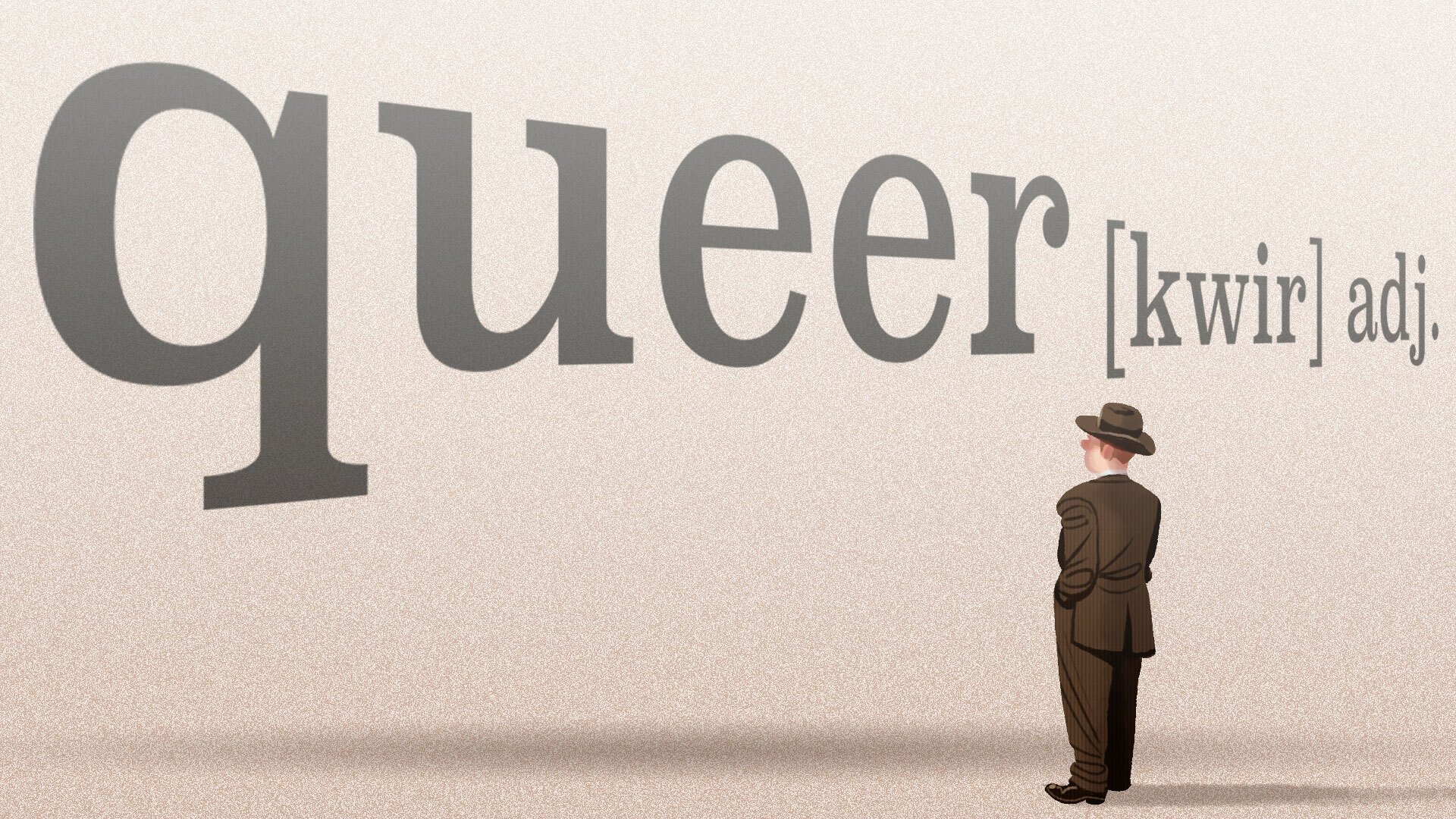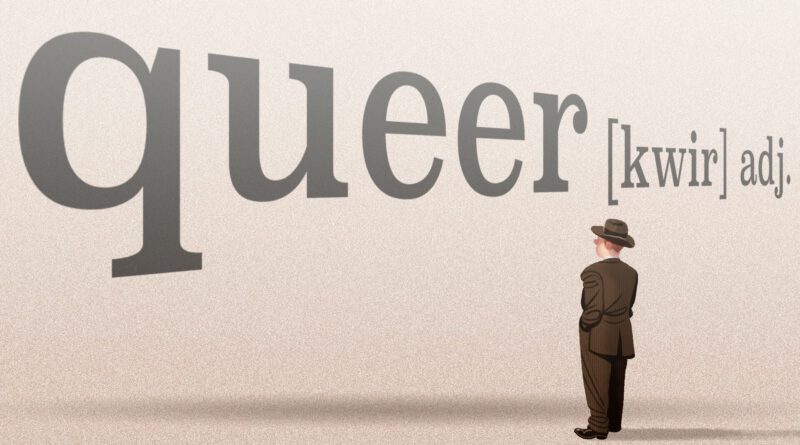What does the word ‘queer’ even mean?

Every Pride, it seems, people online debate about who “counts” as queer. Some may think polyamory and kink are inherently queer, for example, while others disagree. But what does “queer” mean? As experts tell us, the word has shifted in meaning over time — like language in general — and it will continue to do so.
What to know about the word queer
As Timothy Jones, associate history professor La Trobe University, wrote for The Conversation, the history of “queer” traces back to the early 1500s, where it meant strange or peculiar. Queer became slang to refer to same-sex attracted men by the late 1800s. While it was frequently discriminatory, Jones wrote, the word was also used neutrally or favorably.
“‘Queer’ has a history of simultaneously being used as a slur and being used positively in self identification,” Jones told Mashable.
With the rise of the gay liberation movement in the latter half of the twentieth century, some members of the community reclaimed “queer.” Not only did it describe sexuality, but it also described a rejection of heterosexual norms like marriage and monogamy. In the 1980s and ’90s, “queer” came to be used in a more critical and political way to question and open up ways of being in the world, said Jones.
“Queerness is a rejection of everything that’s associated with heterosexuality.”
Queer people who questioned societal ideals were at odds with others in their community who wanted to assimilate to them. “There [were] some branches in the political movement that say, ‘Gay is okay, and we just want to be as normal as possible. We can totally have two gay men who get married and then have two and a half kids at a white picket fence, and that’s what we should be aiming for,'” Andrew Cheng, linguist at Simon Fraser University, explained.
As a counter or backlash to that thinking, queerness emerged as a radical branch of that movement, Cheng continued. There were queer people saying that not only do they differ in their sexuality and gender, but they don’t want to aim for heteronormativity — or homonormativity, which upholds straight norms in the LGBTQ community.
In that way, “queerness is a rejection of everything that’s associated with heterosexuality,” Cheng said. “Even beyond the sexuality.”
What does queer mean now?
The word “queer” has undergone quite a few evolutions. That’s the nature of language: Words change meaning over time, and slang words have specific meanings to specific communities, said Cheng.
“‘Queer’ is a word that even in the span of my lifetime has changed,” Cheng said. Within the LGBTQ community (the Q meaning either queer itself, or questioning), there’s a divide over “queer” being pejorative or a radical term to be used with pride.
In some cases, this divide is generational: Older people may tend to view “queer” as a slur, as it often was when they were coming of age. Younger folks, however, are more likely to have positive and progressive connotations to the word, and use “queer” as an umbrella term for the community.
“In the last twenty years it has come most often to be used as a ‘catch all’ term for people in LGBTIQA+ communities,” Jones said. “All of these meanings [are] still inhere in the word, which can sometimes cause confusion or offense, especially if the word is used without an awareness of its history and multiplicity.”
Are polyamorous or kinky people queer?
This question doesn’t have a clean-cut answer. And more urgent issues require our attention right now — like how the existence of trans youth and adults are under attack in the U.S.
But, if “queer” is the debate du jour, its meaning is worth considering.
“I love how queer holds our complex histories in just one word.”
On one hand, Cheng said, expanding the size of the “queer” umbrella could be nice. There are legitimate accusations of appropriation, however, for people whose gender and sexuality are normative (cisheterosexual) to claim “queer” for themselves.
“I think that’s an ongoing question for the queer community to consider,” Cheng said. There’s overlap in the Venn diagram of people who are queer in terms of sexuality and gender, and people who are queer in terms of being polyamorous or kinky — but that Venn diagram isn’t a circle. “And there is value to having a space that is still for LGBTQ only,” he noted.
“The debate about whether poly and kinky folks are queer illustrates these slippages in historic meanings,” Jones said. While straight and cisgender people who are polyamorous and/or kinky aren’t queer in the sense of being LGBTQ, Jones continued, “polyamory and kink are inherently queer in the political sense of questioning (‘queering’) dominant gender, sexual and relationship norms.”
“I love how queer holds our complex histories in just one word,” Jones said. “I consider it a gift from our queer ancestors who used it alchemically to turn insults into belonging, celebration, political critique, and delight.”
Further, what we say right now about “queer” is true of the present moment, but — as Cheng noted — meanings of words change. “The only thing we can count on is the fact that our associations with words and their meanings [are] always in flux.”
Of course, that doesn’t mean we disregard the significance words have now. “Just be aware that nothing is ever set in stone,” Cheng said, “and that’s pretty queer, too.”
